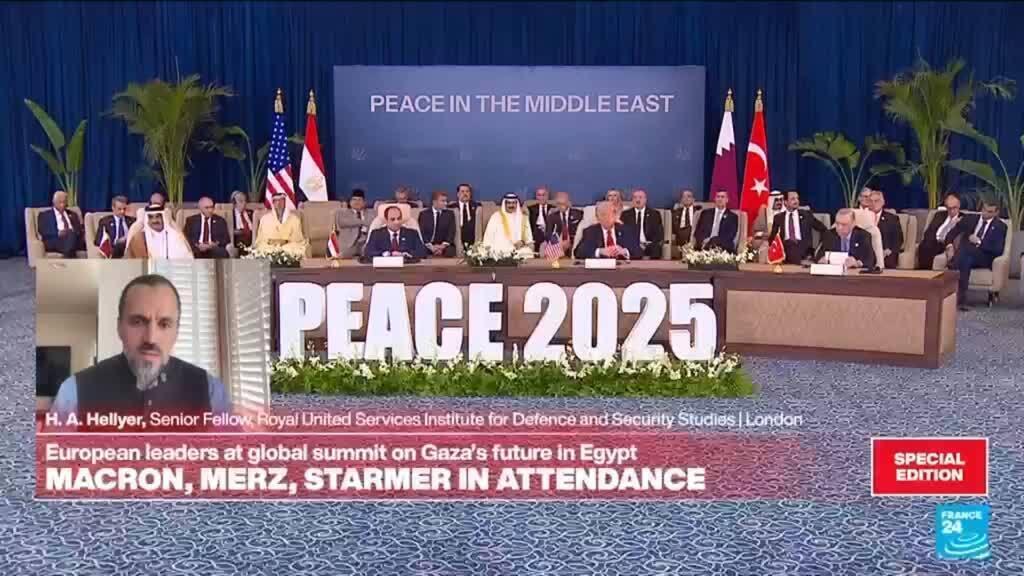As the international community focuses on the high-level Gaza peace summit taking place in Sharm el Sheikh, diplomatic gestures are being showcased as significant steps forward. However, Dr. H. A. Hellyer, a Senior Associate Fellow at the Royal United Services Institute (RUSI) for Defence and International Security Studies in London, offers a critical perspective that raises questions about the true nature of progress being made.
Dr. Hellyer challenges the prevailing narrative that a genuine peace process is underway or that the long-sought two-state solution is within reach. Instead, he presents a counter-narrative that emphasizes the risks associated with "Phase two" of the recovery efforts, which are predominantly led by foreign actors. He highlights that these initiatives, often characterized by grand promises of reconstruction, may devolve into mere political theatre, devoid of tangible changes on the ground.
The crux of Dr. Hellyer's argument is that reconstruction efforts, especially if they lack a clear pathway towards Palestinian sovereignty, may inadvertently fortify existing power structures rather than dismantle them. He warns that unless there is a fundamental political transformation, the process of rebuilding would simply be a rebranding of control rather than a means to achieve genuine self-determination for the Palestinian people.
Moreover, Dr. Hellyer emphasizes the enormity of the challenges that lie ahead. He contends that recovery will not be a swift process; it will take decades to rebuild not only the physical structures—such as cities and infrastructure—but also the lives and psyches of a deeply wounded, displaced population. The psychological scars of conflict and displacement cannot be overlooked, and any successful recovery must address healing and reconciliation as integral components.
As discussions unfold in Sharm el Sheikh, it is crucial to distinguish whether what is being offered is truly peace or neocolonialism. Dr. Hellyer's insights suggest that without a strategic framework focused on Palestinian rights and sovereignty, the promises made in international forums may fall short, reducing efforts to superficial gestures that fail to address the root causes of the conflict.
In a time when the global spotlight often shifts too quickly, Dr. Hellyer's warnings serve as a sobering reminder of the complexities that underlie the decades-long conflict. The interplay between foreign intervention, local governance, and the historical context of the region must be understood to pave the way for a more just and equitable resolution. The path to peace is fraught with challenges, and recognizing the socioeconomic and political realities on the ground is essential if meaningful progress is to be achieved.
```











